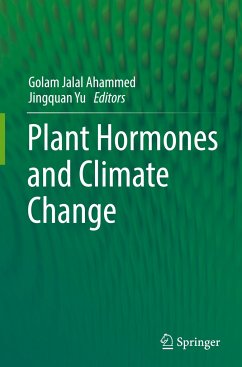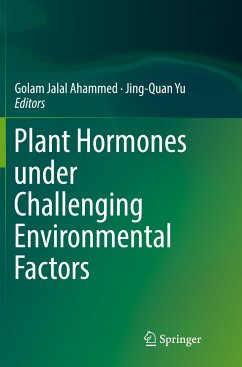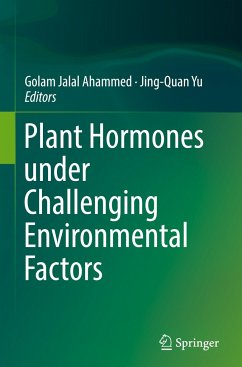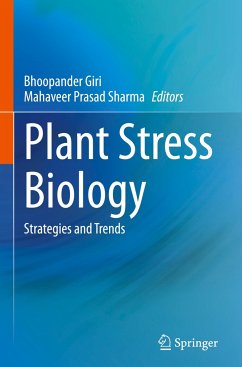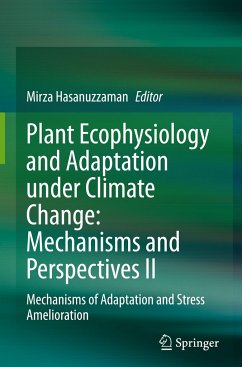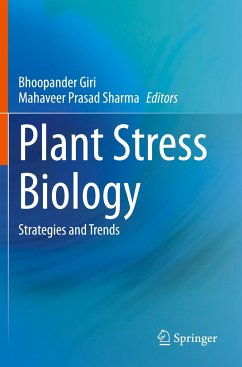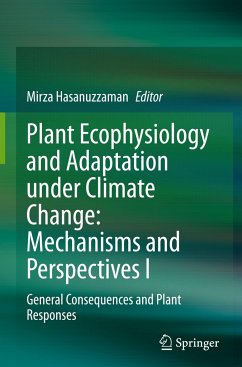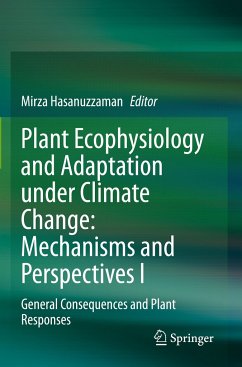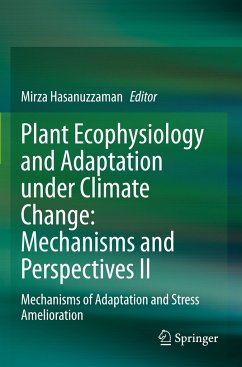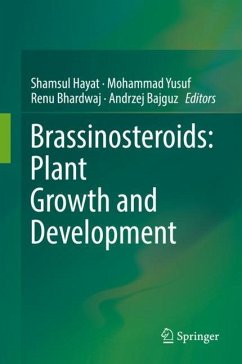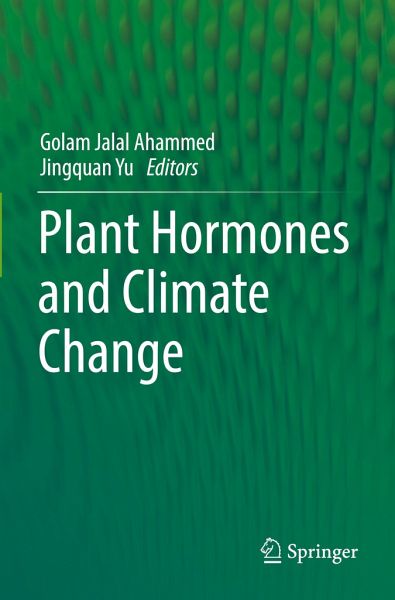
Plant Hormones and Climate Change
Versandkostenfrei!
Versandfertig in 6-10 Tagen
136,99 €
inkl. MwSt.

PAYBACK Punkte
68 °P sammeln!
This book provides new insights into the mechanisms of plant hormone-mediated growth regulation and stress tolerance covering the most recent biochemical, physiological, genetic, and molecular studies. It also highlights the potential implications of plant hormones in ensuring food security in the face of climate change. Each chapter covers particular abiotic stress (heat stress, cold, drought, flooding, soil acidity, ozone, heavy metals, elevated CO2, acid rain, and photooxidative stress) and the versatile role of plant hormones in stress perception, signal transduction, and subsequent stress...
This book provides new insights into the mechanisms of plant hormone-mediated growth regulation and stress tolerance covering the most recent biochemical, physiological, genetic, and molecular studies. It also highlights the potential implications of plant hormones in ensuring food security in the face of climate change. Each chapter covers particular abiotic stress (heat stress, cold, drought, flooding, soil acidity, ozone, heavy metals, elevated CO2, acid rain, and photooxidative stress) and the versatile role of plant hormones in stress perception, signal transduction, and subsequent stress tolerance in the context of climate change. Some chapters also discuss hormonal crosstalk or interaction in plant stress adaptation and highlight convergence points of crosstalk between plant hormones and environmental signals such as light, which are considered recent breakthrough studies in plant hormone research.
As exogenous application or genetic manipulation of hormones can alter crop yield under favorable and/or unfavorable environmental conditions, the utilization of plant hormones in modern agriculture is of great significance in the context of global climate change. Thus, it is important to further explore how hormone manipulation can secure a good harvest under challenging environmental conditions. This volume is dedicated to Sustainable Development Goals (SDGs) 2 and 13. The volume is suitable for plant science-related courses, such as plant stress physiology, plant growth regulators, and physiology and biochemistry of phytohormones for undergraduate, graduate, and postgraduate students at colleges and universities. The book can be a useful reference for academicians and scientists involved in research related to plant hormones and stress tolerance.
As exogenous application or genetic manipulation of hormones can alter crop yield under favorable and/or unfavorable environmental conditions, the utilization of plant hormones in modern agriculture is of great significance in the context of global climate change. Thus, it is important to further explore how hormone manipulation can secure a good harvest under challenging environmental conditions. This volume is dedicated to Sustainable Development Goals (SDGs) 2 and 13. The volume is suitable for plant science-related courses, such as plant stress physiology, plant growth regulators, and physiology and biochemistry of phytohormones for undergraduate, graduate, and postgraduate students at colleges and universities. The book can be a useful reference for academicians and scientists involved in research related to plant hormones and stress tolerance.





